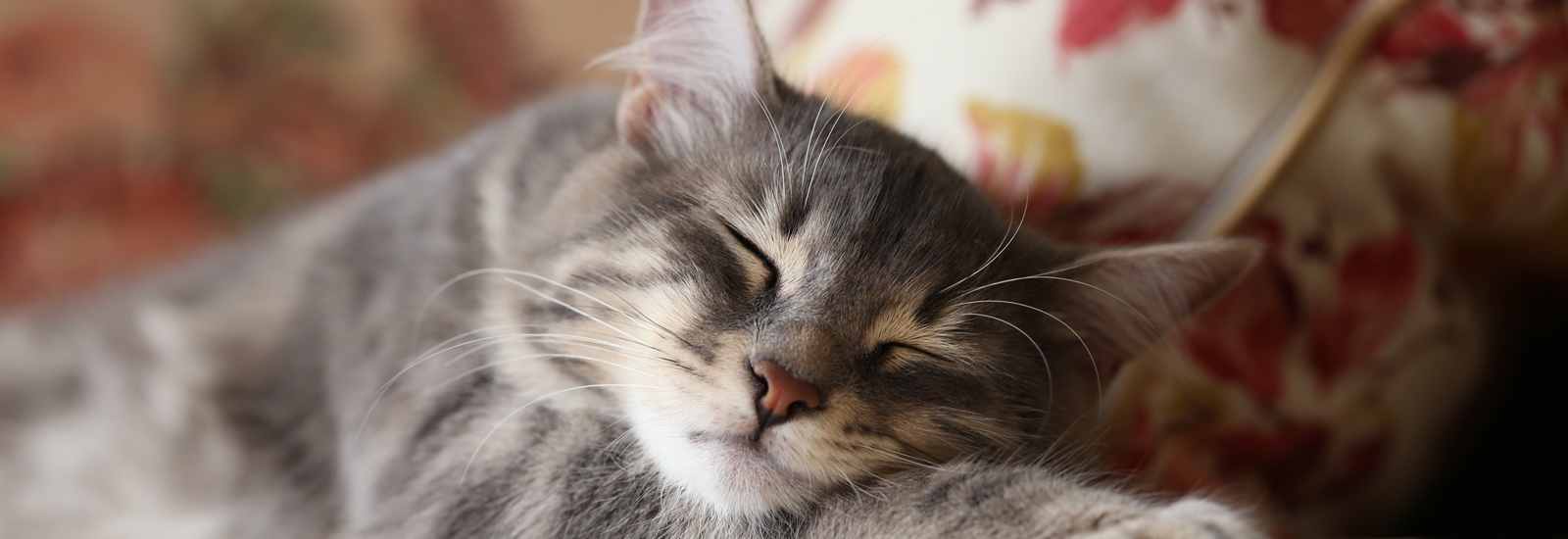Struvite stones in cats
Struvite stones, which are made up of magnesium-ammonium-phosphate, often lead to illness in cats.
A range of different reasons must be considered to determine the cause of struvite stones. One factor is very long intervals between urinating. Many cats urinate only once per day, for example, as they were originally desert animals and therefore their bodies are able to produce extremely concentrated urine. A further point is that the mineral content of the food is of decisive importance as it influences the pH-value of the cat’s urine. Values above 7.0 provide favourable conditions for stone formation. The often-cited magnesium content of food, or rather in the urine, is not the only cause for the formation of struvite stones.
Therapy for struvite stones
Struvite stones can be dissolved by means of a special diet which lowers the urine pH to values of 6.2 - 6.5. In addition, the volume of urine must be raised through an increase in water consumption. If the cat does not eat the special diet, acidification of the urine can also be achieved through methionine and ammonium chloride although the urine pH must be consistently monitored. If struvite stones are already too big, however, removal by means of an operation is advisable.
Special nutrition
When the stones have disappeared, your pet should be fed dietary foods which prevent the development of new stones. This special dietary food - such as animonda INTEGRA PROTECT Urinary Tract Stones - ensures that the urine pH remains between 6.5 - 6.8. You and your cat will then be as well-equipped as possible in the fight against struvite stones.
You may also like this
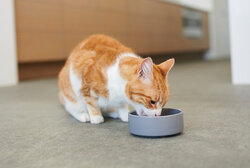
Feeding your cat
Tips on food and a healthy diet
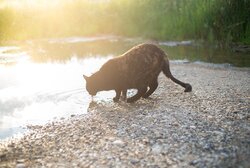
Kidney problems in cats
If its urine shows abnormalities, your cat should be examined
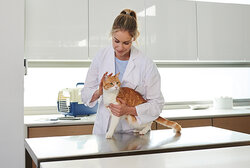
Urinary tract stones in cats
A suitable dietary food can help with urinary tract stones
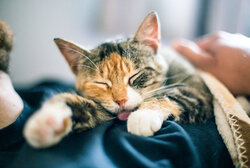
My cat isn’t drinking
Find out if your cat is not drinking enough
